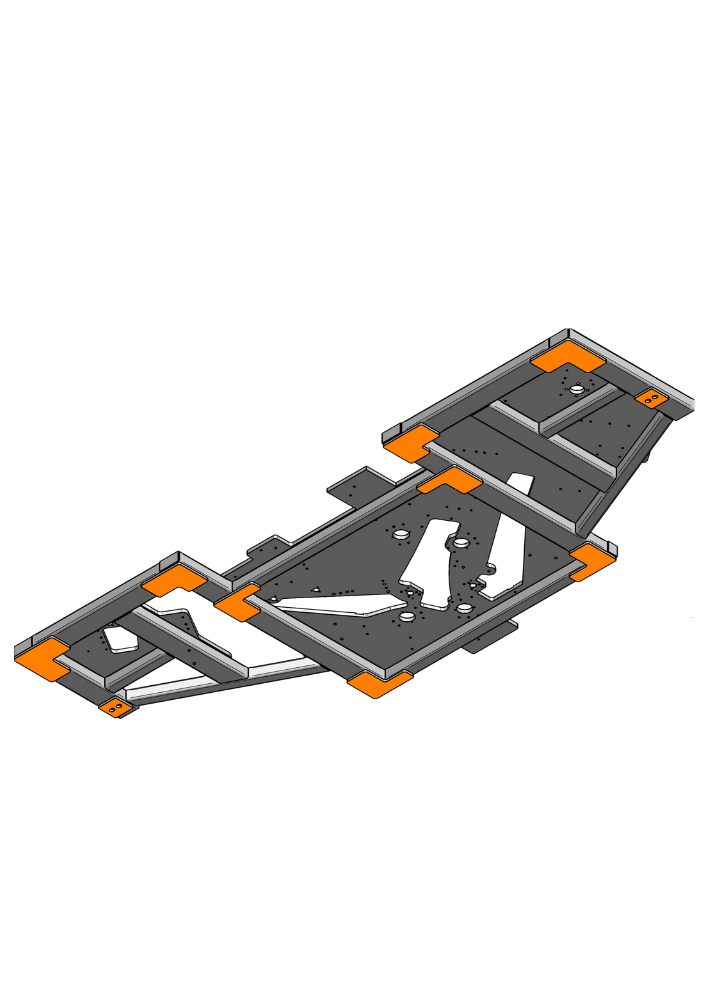Precision engineering has become a cornerstone of modern manufacturing, enabling industries to produce high-quality, complex components with remarkable accuracy. As technology advances and the demand for intricately engineered products grows, precision engineering supports innovation by delivering components and assemblies that meet exacting standards. From aerospace to automotive, medical devices to consumer electronics, many industries now rely heavily on precision engineering. This blog explores how precision engineering supports these industries, the benefits it offers, and the role that high-precision tools and machinery play in enhancing manufacturing quality and efficiency.
What Is Precision Engineering?
Precision engineering involves designing and manufacturing components that meet strict tolerances and specifications. This field focuses on creating parts and assemblies that not only fit seamlessly within complex systems but also perform reliably over time. Using advanced machinery, such as CNC (Computer Numerical Control) systems, jig boring machines, and specialized lathes, precision engineering achieves levels of accuracy that would be impossible with traditional methods.
Benefits of Precision Engineering
- High Accuracy and Consistency: Precision engineering allows manufacturers to produce parts with exact dimensions repeatedly, minimizing errors and ensuring that each part is consistent with the next. This level of accuracy is crucial for industries where even a minor discrepancy can lead to performance issues or safety concerns.
- Increased Efficiency and Reduced Waste: By using precision tools and processes, manufacturers reduce material waste and optimize production times. High-precision machinery cuts components with minimal deviation, reducing the need for rework or correction, which ultimately saves time and costs.
- Enhanced Product Quality: Precision engineering leads to superior product quality by ensuring that each component fits perfectly within an assembly, reducing wear and tear and extending the product’s lifecycle. High-quality components mean fewer recalls, reduced maintenance, and improved end-user satisfaction.
- Supports Innovation and Complexity: In sectors like aerospace, medical, and electronics, products require increasingly complex parts that can only be achieved through precision engineering. This capability supports the development of cutting-edge technology, enabling innovations in fields like nanotechnology, robotics, and healthcare.
Key Industries Relying on Precision Engineering
- Aerospace and Defense: Precision engineering is essential in aerospace for producing components like turbine blades, engine parts, and structural components that must withstand extreme conditions. These parts require tight tolerances and consistent performance, as any deviation can compromise safety.
- Automotive: In the automotive industry, precision engineering plays a crucial role in producing parts such as engine components, gear systems, and braking mechanisms. With the rise of electric and autonomous vehicles, the demand for precisely engineered parts has increased, ensuring that all systems work in harmony for optimal performance.
- Medical Devices: Medical devices require exact dimensions and high reliability to function effectively. Precision engineering allows manufacturers to produce complex surgical instruments, implants, and diagnostic devices, meeting the stringent standards of the healthcare industry.
- Electronics and Semiconductors: Electronics manufacturers depend on precision engineering for creating small, complex components used in smartphones, computers, and other consumer electronics. Semiconductor manufacturing, in particular, requires extreme precision to produce microchips with millions of tiny circuits on a single chip.
The Role of High-Precision Tools and Machines
Modern precision engineering relies on advanced tools and machinery that can operate within micrometer tolerances. Here’s a look at some of the core machinery used:
- CNC Machines: CNC machines are the backbone of precision engineering, offering unmatched control and accuracy for tasks like milling, turning, and drilling. These machines operate with computer-guided accuracy, allowing for the complex shapes and structures required in modern manufacturing.
- Jig Boring Machines: Jig boring is crucial for drilling holes with extreme accuracy, used especially in industries requiring perfect alignment. These machines support high-precision assembly, which is vital in sectors like aerospace and defense.
- Lathe Machines: High-precision lathes create cylindrical parts with exacting specifications, frequently used in the production of automotive and aerospace components.
These machines are equipped with specialized controllers and software that ensure consistent, high-quality outputs with minimal human intervention, greatly improving manufacturing efficiency.
How Precision Engineering Enhances Product Quality and Efficiency
Precision engineering supports manufacturing excellence in the following ways:
- Product Fit and Functionality: Precision-engineered components ensure perfect alignment and functionality within larger assemblies. This fit is essential in applications such as aircraft engines, where even a minor mismatch can lead to catastrophic failures.
- Reduced Assembly Times: Components manufactured with high precision often require less assembly time, as they fit together without needing additional adjustments or corrections. This reduces labor costs and speeds up the production process.
- Reliability and Durability: Products made with precision engineering have fewer defects and last longer. This durability translates into greater customer satisfaction, fewer warranty claims, and lower overall lifecycle costs for the manufacturer.
- Competitive Advantage: Companies that invest in precision engineering gain a competitive edge by delivering products that meet the highest quality standards. This reputation for quality helps them attract new clients, enter high-stakes industries, and expand their market presence.
Conclusion
Precision engineering is an indispensable part of modern manufacturing, supporting industries that demand accuracy, durability, and innovation. The use of advanced machinery and high-precision tools enables manufacturers to meet the stringent requirements of industries like aerospace, automotive, and medical devices. As technology continues to evolve, precision engineering will play an even greater role in driving manufacturing excellence and enabling the development of products that shape the future.
Investing in precision engineering not only enhances product quality and operational efficiency but also positions businesses for long-term success in an increasingly competitive market. Whether producing critical components for aerospace or creating intricate parts for medical devices, precision engineering ensures that modern manufacturing meets the needs of today—and the challenges of tomorrow.


Hi, this is a comment.
To get started with moderating, editing, and deleting comments, please visit the Comments screen in the dashboard.
Commenter avatars come from Gravatar.